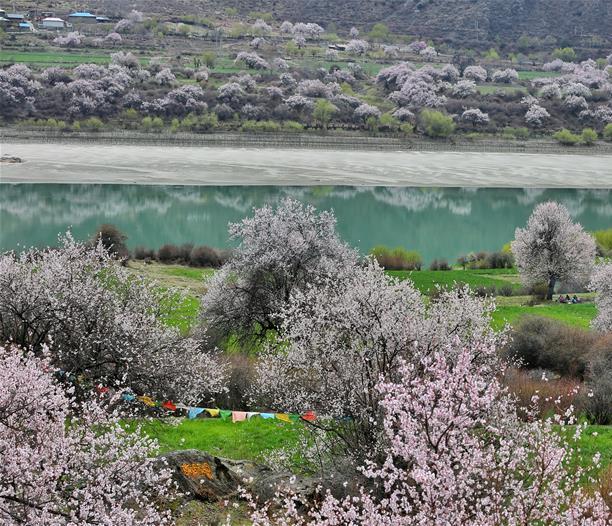Nigerian scholar talks about Tibet's sustainable development

Charles Onunaiju, scholar from the Peoples Daily of Nigeria attends the 2014·Forum on the Development of Tibet, China in Lhasa of Tibet Autonomous Region, SW China on August 12, 2014. [Photo/China Tibet Online]
Self-confidence, volubility, caring for the fate of his nation as well as deep understanding of China's national situation, these are reporter's impression on Charles Onunaiju, a special correspondent and member of Peoples Daily in Nigeria.
As a guest attendee of the 2014·Forum on the Development of Tibet, China, Charles had visited Tibet's Lhasa City and Nyingchi Prefecture for one week and made an on-the-spot investigation on the local family inns, museums, and etc. He thought it was a rewarding trip. Before the trip, he presented the forum with a paper titled "The Road to Sustainable Development of Tibet" to state his opinions about Tibet's development. As he said, "The road map to sustainable development in Tibet is not abstractive but well practiced."
The Chinese government is committed to the development of Tibet
Charles Onunaiju said in his paper, "The comprehensive development strategy of all regions and provinces corresponds to the socialist character and orientation of the Chinese State, in which the people of all ethnic nationalities are the target of continuous, sustainable and improved well-being." And what he saw and heard all the way in Tibet has validated his view.
At the beginning, he cited the article 4 of the Constitution of the Peoples Republic of China in Chapter One of its "General Principles" which clear states that "All nationalities in the People Republic of China are equal. The state protects the lawful rights and interests of the minority nationalities and upholds and develops a relationship of equality, unity and mutual assistance among all of China’s nationalities. Discrimination and oppression of any nationality are prohibited; any act which undermines the unity of the nationalities or instigates division is prohibited." This article is one of the most recognized and respected by Charles. In his opinion, the Chinese government dares to face a series of problems that may be triggered by multiple nationalities, dares to look directly at all of these difficulties, and even enables powerful constitution to guarantee the basic interests of all ethnic groups in China. No matter the ethnic group with large number or small number and inhabited in the remote areas, they are all absolute equal in political rights.
Your Comment
Name E-mailRelated News
-
-

-
Tibetan fashion show held in east China
The "Cultural Creation of Tibet: Tibet and Lhasa Creative Products Tour Exhibition" was held from May 4 to 7 in east China's Jiangsu Province.
-
-
-

-
Infographic: Tibetans celebrate Cuckoo Festival
For Tibetans, the cuckoo is a happy bird, and wherever the cuckoo flies, spring comes.
-
-
-

-
Ecological investment soars on plateau's highway project
Investment in ecological restoration and protection along a 96-kilometer stretch of the Lhasa-Nyingchi highway has hit 440 million yuan ($67.2 million), almost nine times the originally planned amount, an official said.
-







